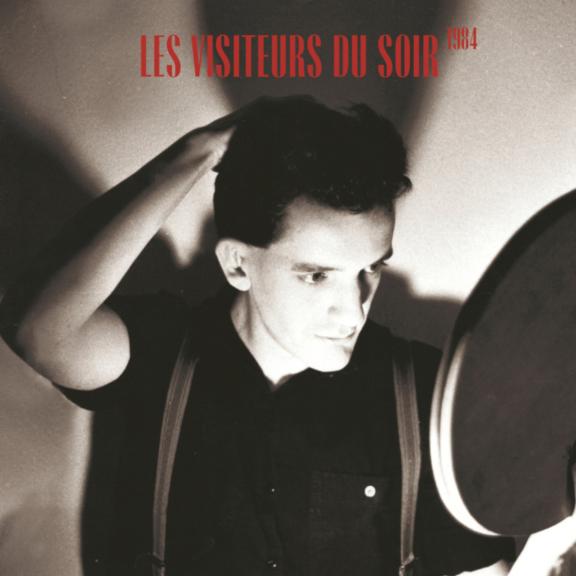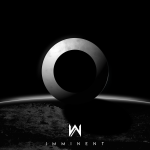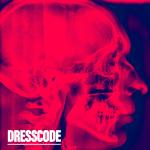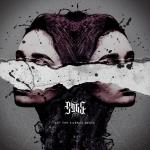Released in September this year, Les Visiteurs du Soir's album 1984 is a remarkable case of a record being released more than forty years after it was composed. 1984 was the year the duo ceased activities under that name after a concert with Rita Mitsouko. Until this year, they were known only for their two contributions to the label New Wave's compilation Le cimetière des passions, including the excellent hit Je t'écris d'un pays. But Les Visiteurs du Soir is actually the name under which the members of the Orléans punk band D.Stop, Pascal-André Fauchard and Jean-Christophe d'Arnell, the future founder of the dark ethereal wave band Collection d'Arnell-Andréa, which continues to amaze us today, worked for a time. So we had every reason to be curious about this little-known project.
The duo happily reunited in 2024, driven by the desire to finally bring this story to a close by producing a recording worthy of their compositions from that era, most of which only existed on an old live cassette. The ten main tracks from 1984 consist of this recent recording of songs from the 1980s, with Jean-Christophe d'Arnell taking charge of the compositions and keyboards, while the vocals and lyrics are by Pascal-André Fauchard, the duo having abandoned D.Stop's guitar for this project.
It offers a beautiful glimpse into an era when new wave was sweeping across France, with tracks built around a drum machine that gives the music its danceable energy, while synthetic layers unfold, less cold than one might expect, sometimes soaring away; combined with French vocals, it is very reminiscent of Taxi Girl's Seppuku period. Les Visiteurs du Soir, however, have a darker touch than the latter, less mysterious than oppressive; it is Pascal-André's vocals, often laden with bitterness or fear, the low synth pads that burst in here and there, and the repetitiveness that sometimes gives us less energy than a feeling of confinement. Les Visiteurs du Soir's tracks are catchy but also haunting, more so than many of the French new wave productions of the time; even under seemingly soft layers of synthesizers, the influence of DAF and Suicide was not far away. Naturally, the sounds don't surprise us, but these rhythms and melodies captivate us.
What appeals to us most, however, are the lyrics. Unsurprisingly, the tone is decidedly pessimistic: Les Visiteurs du Soir is set in the context of the 1980s, when everything that was supposed to make the world a better place had failed, so it is hardly surprising that the themes are disturbing or melancholic, with life stories that end badly. But above all, the writing is incredible, with verses that sometimes feature clever puns and ambiguities, and we really like the themes. We find the same taste for 19th and 20th century history that sometimes appeared in D.Stop (we think in particular of Insurrection parisienne) or later in the lyrics of Jean-Christophe d'Arnell on certain tracks from Collection d'Arnell-Andréa (mainly the album Villers-aux-Vents).
This is how we love, for example, the bittersweet electro-pop of Une statue de marbre and embrace a new version of Je t'écris d'un pays that is very close to the original, or a much more oppressive new version of Le maudit entitled Mörder, over which hangs the shadow of Fritz Lang's film M. We are also fascinated by the historical dive into the past as we discover Quel étrange voyage, where exhilarating music accompanies beautiful lyrics about an encounter with the son of a refugee who fled the political turmoil in the Middle East, Benoît Broutchoux, a tribute to the miner and heroic anarchist activist of the early 20th century who met a sad end, and even more so the magnificent Le courage des poilus, a bitter observation of the absurdity and hypocrisy of the First World War. Shock Therapy sounds like a reunion: it is in fact a new version of Traitement de choc by D.Stop, where the desperate momentum of the original has given way to an icy perdition with industrial accents.
We are won over, and there are still things to discover if we want to: the record also includes Le temps me quitte, the original version of Une statue de marbre recorded in 1984, and above all Le maudit, the other track by Les Visiteurs du Soir featured on the New Wave compilation: which is great, because although we also really like the new version, this one had an impressive, sombre power with its whistling. Finally, buyers of the vinyl can download the seven remixes of Je t'écris d'un pays pas ordinaire available on Bandcamp: several names from the French cold music scene who have had the opportunity to rub shoulders with Collection d'Arnell-Andréa are recognisable, such as their label mates Martin Dupont, the electronic project Laudanum who opened for CDAA in Orléans in 2021, Piers Volta who rearranged the album Another Winter (review) and, of course, Opera Multi Steel. Among them, we particularly appreciate Martin Dupont's edgy version and Opera Multi Steel's dreamlike version.
A unique project, Les Visiteurs du Soir did more than just present us with a historical curiosity in 1984: it created a bridge between eras, with music and lyrics composed forty years ago still resonating with us today as if they had been written yesterday.





